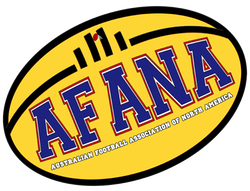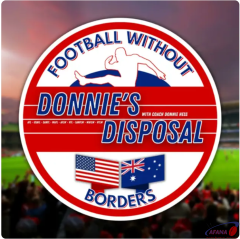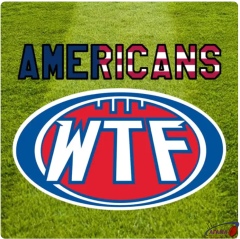by Lisa Albergo reporting for AFANA from Chicago
The AFL's illicit drug policy has had its critics over the years, with many believing that players should be "named and shamed" and punished after just one "strike" rather than waiting until a third positive test. Many also believe that AFL clubs should be notified of the player's name after the first positive test.
That has now changed with the League reviewing the existing policy and instituting changes which will see players named publicly, fined and suspended for four matches if they record a second positive test. After a first strike, the player name will still remain anonymous but there will be a $5000 suspended fine. A third strike will incur a 12 match suspension.
Players with one strike already against their name under the existing policy will be granted some leeway after a second positive test. Those who have not registered a strike for two years or more will have a clean slate. However, a player already on one strike will be penalized under the new policy if a second strike is recorded. A player already on two strikes will be named publicly and receive a four match suspension and the fine if they return a positive detection.
AFL Football Operations Manager Mark Evans said the Players Association will work with the AFL to ensure it kept pace with what was occurring. While saying "Drug use in society ... is an incredibly complex issue. There is no silver bullet that just makes this go away", he did acknowledge that drug use among AFL players was below that of the broader community. He commented that playing AFL football was a privilege which came with responsibility to both the clubs and the game.
AFLPA CEO Paul Marsh said players still have the opportunity to modify their behavior after recording a strike and that the new policy also would provide clubs the information needed to support players after a second strike. "We want to deter players from using illicit drugs, but when players do use them … the AFL Players' Association is there to support them and the long-term aim is to try to change their behavior".
The major components of the evolved policy include:
- Enhanced player education and counseling programs to help players with meaningful and lasting behavioral changes.
- Appropriate system of medical interventions as required, delivered by the AFL medical officer, AFL doctors and medical experts.
- Opportunity for players to modify behavior at first detection. Interventions at this stage do not involve a playing or financial sanction but will trigger education and counseling programs, along with target testing.
- Stricter set of consequences for players who fail to modify their behavior, public suspension and fine after second detection.
- Increased club involvement with clubs informed earlier and able to assist with education and counseling programs.
- Urine testing and year-round hair testing, urine testing to determine consequences, hair testing to monitor behavior and direct target testing and education programs.
- No public release of results, the AFL will no longer release the results of illicit drug testing.
- Self-notification: Players will be permitted one self-notification, allowed only if they have not previously been identified under the illicit drugs policy.
- Players in the AFL’s talent pathway programs will also undergo testing with detections of an illicit substance to be communicated to the respective club doctor once drafted.
Interventions and consequences are as follows:
First detection: $5,000 financial sanction (suspended) and compulsory counseling and education programs.
Second detection: Four match suspension and $5,000 sanction imposed. Club notified and the suspension confirmed publicly.
Third detection: 12 match suspension.
In mid-October, shortly after a trade deal was completed which saw Essendon's Jake Carlisle traded to St Kilda, a video of Carlisle surfaced and was aired on Melbourne TV. It was an alleged "selfie" of Carlisle in Las Vegas ingesting a white powder. Needless to say, the Saints were angered by the video and Carlisle returned to Australia several days later. He issued a public apology for his "inappropriate behavior and poor judgment" and said he would accept any sanctions placed on him by the League and club. it is believed Carlisle will be given some leeway under the new policy as the incident took place prior to the AFL announcement.
The litany of drug issues which arose in 2015 is vast. Gold Coast's Harley Bennell was suspended after a 2013 photo surfaced and was published, showing him seemingly ingesting a white powder. He has since been traded to Fremantle. Fremantle's Ryan Crowley was suspended for most of the season after testing positive for a banned substance and admitted to self-medicating to overcome back problems. Crowley did not play another game for the Dockers even though he was eligible for selection in September. Collingwood duo Lachlan Keeffe and Josh Thomas accepted two year bans after accepting guilty verdicts for the use of a performance-enhancing drug. Saint Kilda's Ahmed Saad returned from a lengthy suspension for ingesting a banned substance contained in a sports drink.
Source: afl.com.au, author notes
Article last changed on Friday, October 30, 2015 - 8:49 PM EDT






